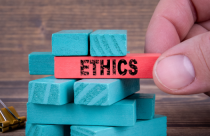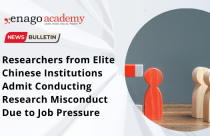Fighting Misinformation During the COVID-19 Crisis

As the COVID-19 pandemic spreads around the world, it is shadowed by another “disease”: misinformation. Fuelled by both traditional and social media, misinformation presents a new kind of threat. The COVID-19 pandemic is the first since the rise of social media, meaning that misinformation can spread faster and further than ever before. For some, this leads to a confusing “information overload.” While most people who share too much information, some of which may be misinformation probably mean well, the consequences can be serious.
Although some of the untruths reported in the media may seem trivial, others have the potential to cause individuals to make unwise choices – risking their own health and that of their friends, families and societies. Misinformation can even cause large-scale panic, as in the cases where rumors of shortages led to panic-buying and hoarding instead of stocking.
Fighting Back Against Misinformation
With great timing, a new initiative against misinformation was recently launched. In December 2019 – in the earliest days of the COVID-19 pandemic – five researchers at the University of Washington, Seattle, USA, launched the Center for an Informed Public.
The main goal of the Center is to discover how misinformation spreads. The findings will be used to “promote an informed society, and strengthen democratic discourse.” Just a few short months later, the COVID-19 pandemic is providing an enormous amount of research data for the group to work with.
Two of the Center’s founders, Emma Spiro and Kate Starbird, are busy collecting data from social media platforms and news reports. In particular, Spiro and Starbird are looking at the misuse of data and statistics in online media. They hope to uncover the impact of this misinformation on public understanding and the way that people make decisions.
In a recent interview with Science, Spiro and Starbird explained the possible cause of the spread of misinformation in the current pandemic.
How Does Misinformation Spread?
In the era of social media, misinformation spreads like wildfire. The director-general of the World Health Organization called this problem an “infodemic.” According to Starbird and Spiro, much spreading of misinformation is due to natural worries about the situation. When worried or uncertain about something, people try to make sense of it: a process called “sensemaking.” Rumours arise as people look for the best information they can about a topic, so that their worries go away. It is important to remember that not all rumours are false – some are true, as well.
People might also feel that the risks of not sharing true information are greater than the risks of passing along false facts. For example, imagine you read a rumour that drinking tea prevents COVID-19. You might not be sure it is true, but choose to share it anyway, in case it is. You might think that if the rumour turns out to be false, no harm is done. Often, people spread misinformation out of a genuine wish to help friends and family.
Sometimes, governments are also responsible for spreading misinformation. This might be because scientific advice has been misunderstood. Worse, though, it could be because political goals do not align with scientific or medical opinion.
Misinformation Can Cause Long-term Harm
Sadly, it is likely that the COVID-19 pandemic will not be the last global health crisis. It is vital that everyone, from governments to individuals, learns from this experience, so that we can be better prepared in future. Unfortunately, misinformation can prevent this from happening.
Misinformation can undermine scientific advice, when it appears that experts are going against popular opinion. This is even more the case when expert advice is rejected by governments. While the team at the Center for an Informed Public are studying the spread of misinformation during the COVID-19 pandemic, the true effects will not be known for some time. The group’s work will be essential in forming responses to future public health crises.
Stopping the Spread of Misinformation
One of the things Spiro and Starbird are trying to understand is the relationship between scientific advice and social media. Sometimes, scientific or medical opinion is misreported or misunderstood. Also, social media has allowed some people or organizations to gain influence they do not deserve. People with no medical training might offer medical advice, for example.
The Center for an Informed Public is not only looking at how misinformation spreads – they are looking at ways to stop it, too. One possible way to do this is by reducing the influence of people or groups who may have previously shared misinformation. This could involve the cooperation of both mainstream and social media organizations. Often, there is a flow of information between individuals, mainstream media and social media. While this can spread misinformation, it could also be used as a way to tackle the problem.
In future, fighting misinformation could be a key part of the response to a crisis. However, Spiro believes that prime responsibility for this lies with organizations, not individuals. It is important not to prevent people from sharing information.
How Fighting Misinformation Helps the Academic Community
For researchers, seeing scientific untruths being widely shared can be disheartening or even upsetting. Organizations like the Center for an Informed Public can support academia by “clearing the path” for valid scientific advice. In the coming years, the Center hopes to offer education for children and young people. Hopefully, this will raise awareness in the community, so that people think more carefully before spreading misinformation.
In my opinion, the work of the Center for an Informed Public is vital, both for individuals and more society. I have experienced friends and relatives sharing misinformation during the current COVID-19 pandemic. Unfortunately, it is difficult for individuals to fight back against these untruths. However, media organizations must strive to ensure that true scientific expertise gets more attention than misinformation. This may turn the tide.
Have you encountered misinformation during the COVID-19 pandemic? What was your response? Share your thoughts and experiences in the comments below.
The COVID-19 crisis has affected everyone. Enago Academy has more advice about dealing with information overload, as well as about coping with the crisis as a researcher. Do check them out!









